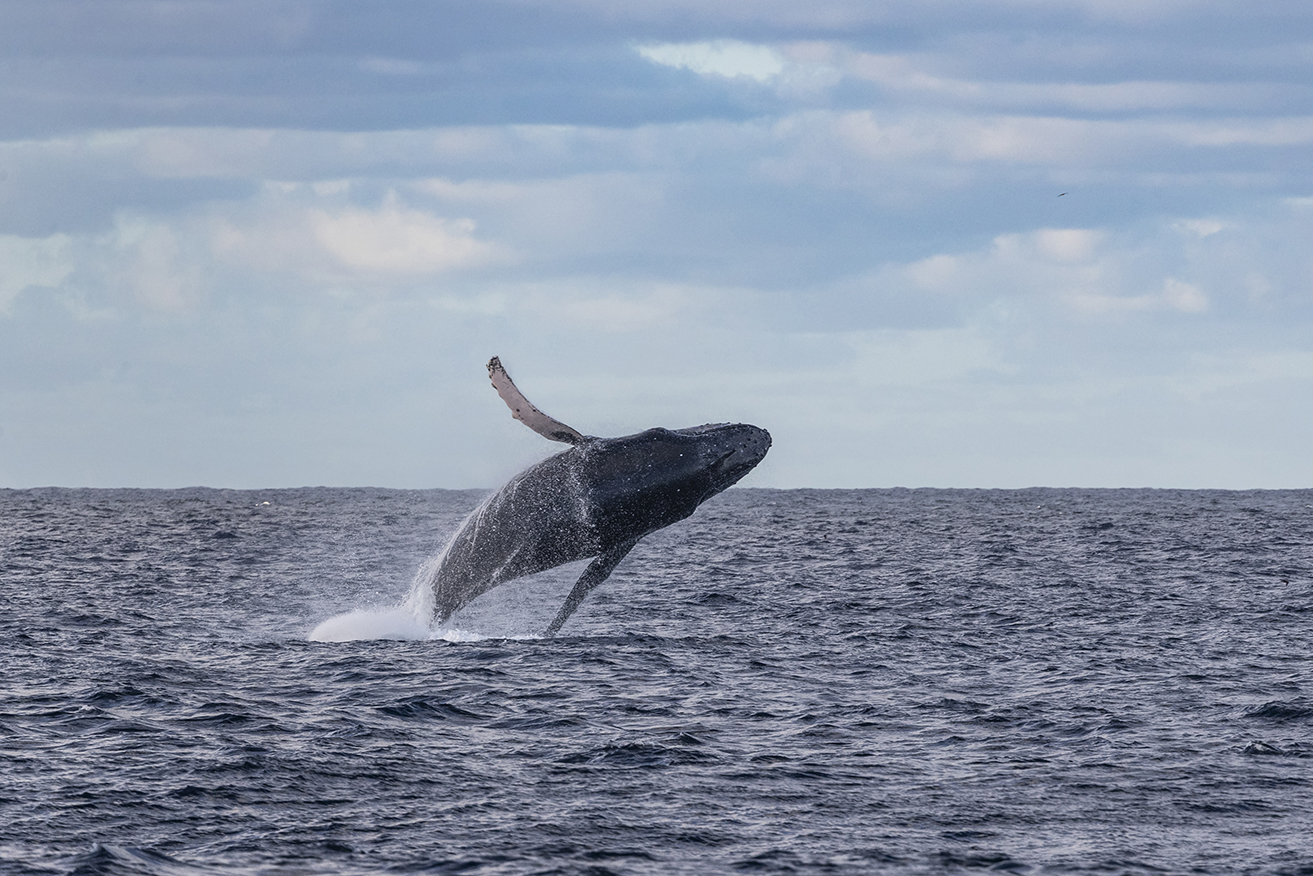Keira Jenkins
Feb 28, 2024

An Australian study has found humpback whale numbers dropped
by 20 per cent from 2012 to 2021.
A severe marine heatwave might have led to a sharp decline in humpback whale populations, a study has found.
Scientists believe the “major event” that spanned 10 years indicates marine life is sensitive to climate change
The study’s lead author Dr Ted Cheeseman said humpback whale numbers dropped by 20 per cent from 2012 to 2021 after decades of growth.
The decline coincided with a marine heatwave, which scientists said likely reduced food availability for the whale.
“What that means is that humpback whales and by extension a lot of marine life is sensitive to climate change and climate impacts to the oceans,” Cheeseman said.
Cheeseman, from Southern Cross University in New South Wales, said before 2012, populations had been steadily recovering following the end of commercial whaling in 1976.
At one stage whales had been hunted down to about five per cent of their natural population, he said
Humpback whales are considered an “indicator species”.
Cheeseman said because humpback whales ate a variety of different food sources, their population numbers could provide insight into the health of the entire ocean.
“What we’re reading from that is this marine heatwave, it didn’t affect a few parts here and there, but it actually decreased the ability of the whole ocean to support a wide range of life,” he said.
The study used AI to identify whales from photos of their tails.
They collated images from more than 4000 whale watchers and 46 organisations through the website Happywhale, which Cheeseman founded in 2015.
“As a result, we got to a place where we have identified almost every living whale in the North Pacific Ocean,” Cheeseman said.
While the decline in population from 2012 was significant, Cheeseman said humpback whale numbers were starting to stabilise.
“They’re not in danger of extinction, but this was a major event and very unusual so hopefully not something we will see regularly,” he said.
“With climate change, we can expect that this could happen again, but how severe or how often we can’t know.”
-AAP
No comments:
Post a Comment